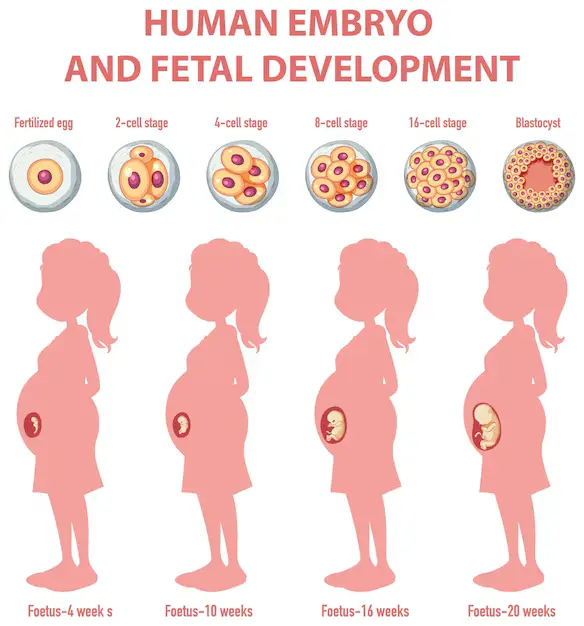Pregnancy is a transformative experience, and the first trimester is crucial for both the mother and the developing baby. Regular prenatal visits during this period are essential for ensuring a healthy pregnancy. Understanding what to expect during your first-trimester visits can help ease your anxiety and prepare you for this exciting journey.
Why Prenatal Care Matters
Prenatal care involves regular check-ups with a healthcare provider to monitor the health of both the mother and the baby. Early and consistent prenatal care is linked to better outcomes for both mother and child. According to the American College of Obstetricians and Gynecologists (ACOG), timely prenatal care can reduce complications, improve maternal and fetal health, and promote healthy lifestyle changes.
Scheduling Your First Visit
Your first prenatal visit typically occurs between 6 to 8 weeks of pregnancy. Early appointments are essential for establishing care and beginning routine assessments. If you suspect you are pregnant, it’s advisable to schedule your appointment as soon as possible.
What to Expect During Your First Visit
Your initial visit may take 30 to 60 minutes and will likely include the following components:
1. Comprehensive Medical History
During your first visit, your healthcare provider will conduct a thorough review of your medical history. This includes:
Previous pregnancies and their outcomes.
- Any chronic health conditions you may have (like diabetes or hypertension).
- Family health history, focusing on any hereditary conditions.
- Lifestyle factors, such as exercise, diet, and substance use.
- This information helps create a personalized prenatal care plan
2. Physical Examination
Your first appointment always includes a physical examination. This may include:
- Using calipers to determine your skin folding and then using your height and weight to calculate your BMI.
- Checking your blood pressure in order to determine cardiovascular status.
- To engage in a pelvic exam that assesses one’s reproductive tract.
- These assessments set up your foundation of health as you start your pregnancy.
Know More: Methods of Birth Control
3. Laboratory Tests
Blood tests and urinalysis are commonly performed during your first trimester visit to check for:
- Blood type and Rh factor.
- Hemoglobin levels to check for Anemia.
- Infections like human immunodeficiency virus (HIV), syphilis and hepatitis B virus infections.
- Individuals with acute or chronic hepatitis can have immunity to rubella (German measles) and varicella (chickenpox).
- Urinalysis determines urinary tract infections and protein, other signs of possible diseases.

4. Ultrasound Assessment
An ultrasound might be done, but it’s not always required during the first trimester of pregnancy. This imaging can help:
- Ensure that you are pregnant and the location of the pregnancy is not an ectopic pregnancy.
- Find out the age of the fetus in weeks of pregnancy.
- Where there are two or more gestation sacs, compare with the number of fetuses seen on scan.
- The first ultrasound usually takes place around 6 to 8 weeks and many women get comfort knowing their baby is there.
5. Nutrient Advice and Other Counselling
To ensure healthy for baby growth and development and your own health, your healthcare provider will explain to you the type of diet and other activities to avoid during pregnancy. Key recommendations may include:
- The use of prenatal vitamins that include folic acid in an effort to avoid neural tube imperfections.
- Eating healthy foods in revised food pyramid; taking fruits, vegetables whole grains and proteins foods.
- Abstinence from alcoholic products and cigarettes, and certain food products and drugs.
6. Speaking of Symptoms and Concerns
It’s important to discuss any symptoms you’re experiencing, which may include:
- Nausea, specifically, morning sickness This was supplemented by occasional vomiting.
- Fatigue and exhaustion.
- Breast tenderness.
- This is your first appointment to state any issues or queries which you may have regarding your pregnancy, it is mandatory that you communicate with your caregiver as this is your welfare at stake
7. Planning Future Appointments
During the first trimester, a woman should see her healthcare provider on a four week interval after the first visit. Depending on your condition, the number of prenatal visits may be increased as pregnancy advances, particularly in the last trimester.
Conclusion
A prenatal care plan is incomplete without the first-trimester visits. Office visits guarantee the state of the health of not only the woman but the baby as well, and also supplies assistance and information regarding pregnancy. It is important for you to comprehend about these visits with an aim of lifting your spirits in order for you to prepare adequately for the tasks that lie ahead.
As always, if you have questions or concerns about prenatal care, it is always best to seek your healthcare provider for the recommended advice.

